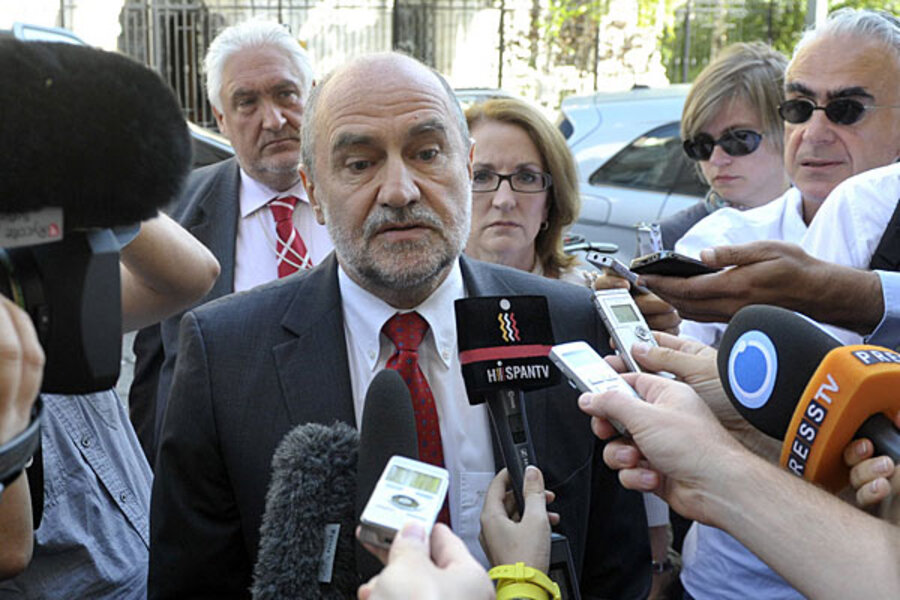UN tries again to access suspected Iranian nuclear site
Loading...
| VIENNA
Amid low expectations of success, U.N. nuclear agency officials pushed anew on Friday for access to an Iranian site they suspect was used to work on nuclear arms and cooperation by Tehran on a wider probe of alleged experiments meant to develop such weapons.
Going into the meeting with officials of the International Atomic Energy Agency, Iranian envoy Ali Asghar Soltanieh told reporters both sides were trying to bridge disagreements, adding: "I hope for success." Senior IAEA official Herman Nackaerts was more circumspect, saying only "his team sought agreement on resolving "all the outstanding issues" — terminology the agency uses for suspected nuclear weapons research and development by Iran.
Teheran denies any interest
The Islamic Republic vehemently denies any interest in such weapons and says all its atomic activities are peaceful. But its long-standing refusal to cooperate with IAEA experts seeking to investigate the allegations fuel suspicions it may have something to hide. Tehran also refuses to give up uranium enrichment — which can make both reactor fuel and arm nuclear missile — despite offers of such fuel from abroad, adding to such suspicions.
With both the agency and international diplomatic efforts stalemated in attempts to engage the Islamic Republic on its nuclear program, fears are growing that tensions could spill over into armed conflict.
Israeli leaders have been loudly expressing impatience over Western diplomatic and economic moves to deter Iran and increasingly talk of attacking its nuclear facilities, though some analysts believe the saber-rattling is a bluff to increase pressure on Tehran. Iranian leaders have rejected Israel's warnings, threatening punishing retaliation.
While the IAEA insists it has to exploit every opportunity to seek Iran's cooperation, senior agency officials spoke of low expectations ahead of Friday's talks after years of failed efforts to persuade Iran to cooperate.
Access to a site at Parchin
"I cannot say that I am optimistic about the outcome of the coming meeting," IAEA chief Yuiya Amano told reporters in Helsinki, Finland, on Wednesday. "I cannot say when we can reach agreement."
Nackaerts said that a key agency focus Friday is hoped for access to a site at Parchin, a military installation southeast of Tehran that the IAEA suspects was used for tests on how to explode a nuclear warhead — and which agency officials fear is now being cleaned up to remove all traces of such work. They cite satellite photos and other intelligence that apparently show such a major sanitization effort.
Tehran says a visit is possible only after extensive planning and a detailed outline of procedures. IAEA officials in turn privately describe that caveat as a stalling tactic, allowing for removal of all traces of such suspected work.







